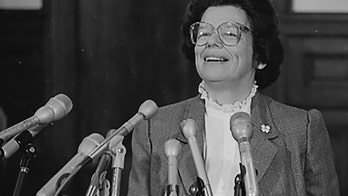LODI, California – Obtaining a concealed weapon permit in California is a proverbial roll of the dice as the standards vary wildly from agency to agency, according to a report.
But almost no continuity exists among the dozens of law enforcement agencies authorized to issue concealed weapon permits in the state, the Lodi News-Sentinel reported this week.
In most states, law enforcement agencies issue permits based on a statewide standard.
But in California, each agency, from the tiniest police force to the largest sheriff's department, develops its own standard. It can be based on politics, population, personal opinion, budget cuts — and at any time, for any reason, an agency can change policy.
For example, the San Joaquin County Sheriff's Office rejects more applicants than it approves, while the Calaveras County Sheriff's Office approves more than 90 percent.
However, if you live in San Francisco, you're not so lucky. San Francisco very rarely issues permits. In fact, there are only two in a city of 700,000. Both were obtained through the police department.
Statewide, more than 55,000 people are permitted to carry concealed weapons, according to state Department of Justice statistics. The issue is heating up in California as gun laws are debated and many residents want guns for their own safety and protection. Also, a number of residents are suing restrictive agencies of violating equal-protection rights.
Some California lawmakers believe reform is needed.
"There shouldn't be such significant variance in how many permits are allocated," said Assemblywoman Kristin Olsen, R-Modesto. "(Law enforcement agencies) should be issuing concealed weapons permits to people who apply for them, unless there is a legal reason not to. So if that is not being followed throughout the state ... then perhaps we do need some clarifying criteria and standard at the state level."
When a citizen applies for a concealed weapon permit, agencies require them to pass a background check, a shooting proficiency test and a psychological evaluation. The applicant must also submit a sworn affidavit explaining why they need to carry a concealed gun.
If granted a permit, the applicant can carry a pistol, revolver, or other firearm capable of being concealed in public. Even if the applicant is denied a permit, they can still store a weapon at their home.
Dave Wellenbrock, a former chief deputy district attorney and deputy public defender for San Joaquin County, has seen the concealed weapon issue from different angles.
He said getting a permit varies "incredibly" throughout the state.
"It's really pretty arbitrary and varies with the scene," Wellenbrock said. "There's not many guidelines on who has them and who shouldn't get them at the state level.
"It depends on who the head of the local agency thinks should have one," he continued. "And because there are no guidelines on who should have one, it creates a wide range of discretion."




